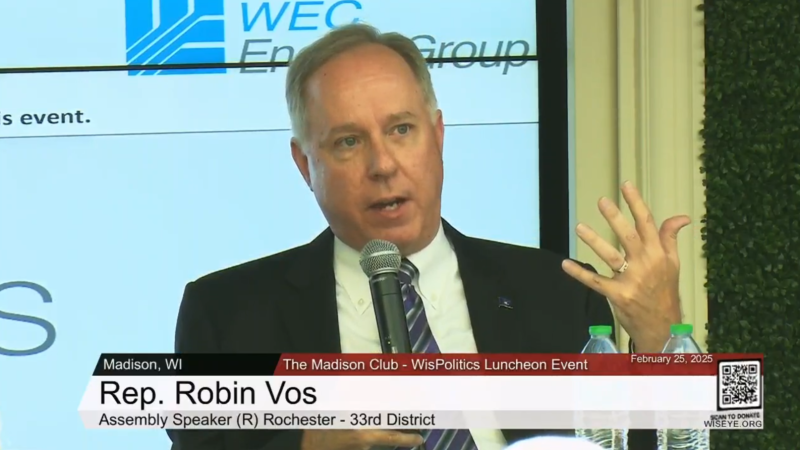Assembly Speaker Robin Vos during a Madison event yesterday said “all tax cuts are good,” but knocked Tony Evers’ approach, saying the Dem guv’s budget would actually raise costs for Wisconsinites.
In announcing his budget, Evers focused on some $2 billion in tax relief, from efforts to hold down local property taxes to exempting residential energy from the sales tax. But Vos told a WisPolitics l...
Please log in to access subscriber content.
If you don't have a subscription, please contact schmies@wispolitics.com for subscription options on the WisPolitics-State Affairs platform, which is the new home for WisPolitics subscriber products.



